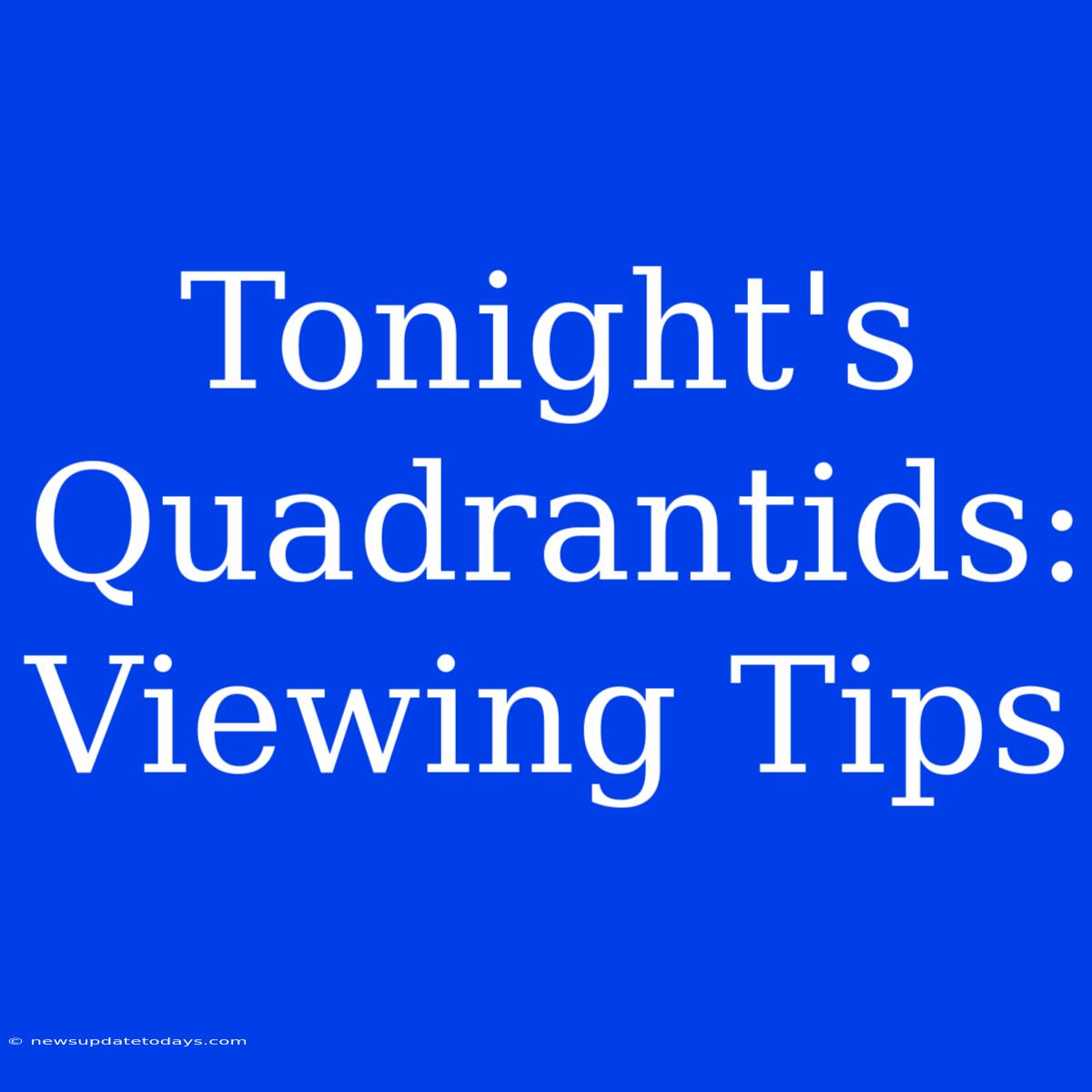Tonight's Quadrantids: Maximize Your Meteor Shower Viewing
The Quadrantids meteor shower, known for its bright and fast meteors, peaks tonight! Don't miss this celestial spectacle. This guide provides essential tips to ensure you have the best possible viewing experience.
Understanding the Quadrantids
The Quadrantids, unlike many showers linked to comets, are associated with asteroid 2003 EH1. This produces a shorter, more intense peak than other showers, making timing crucial. The radiant point – the apparent origin of the meteors – lies in the constellation Boötes, near the former constellation Quadrans Muralis (hence the name).
Maximize Your Quadrantid Viewing: Key Tips
1. Find a Dark Location: Light pollution is the enemy of meteor shower viewing. Escape city lights and head to a rural area with minimal light interference. The darker your sky, the more meteors you'll see.
2. Timing is Everything: The peak activity is relatively short, typically lasting only a few hours. Check online resources for the precise peak time in your location. The hours before dawn are generally best.
3. Be Patient: Meteor showers aren't a constant barrage of light. Allow at least 30 minutes for your eyes to adjust to the darkness. Lie back comfortably and let your gaze wander across the sky.
4. Dress Warmly: Even on a mild night, temperatures can drop significantly once the sun sets. Dress in layers and bring warm blankets. Comfort is key to enjoying a long observing session.
5. No Equipment Needed (But Helpful!): While binoculars or telescopes aren't necessary to see the meteors, they won't help. The meteors streak across a wide area of the sky. A comfortable reclining chair or blanket is much more important.
6. Check the Weather: Cloud cover can completely ruin your viewing experience. Check the weather forecast before you head out. Clear skies are essential.
7. Know Where to Look: While meteors will appear across the sky, the radiant point in Boötes is a good starting point. However, don't stare directly at it; scan the entire sky.
8. Capture the Magic (Optional): If you're an astrophotographer, this is a fantastic opportunity! A wide-angle lens and a long exposure will capture stunning images of the meteors.
What to Expect Tonight
Expect to see anywhere from 60 to 200 meteors per hour at the peak, though the actual number you see will depend on the factors above. Be patient, be prepared, and enjoy the show!
Beyond Tonight
Missed the peak? Don't worry! You might still catch some Quadrantid meteors in the nights following the peak, though at a lower rate.
Remember to share your Quadrantid viewing experiences! Use #Quadrantids2024 on social media to connect with fellow stargazers. Clear skies!

